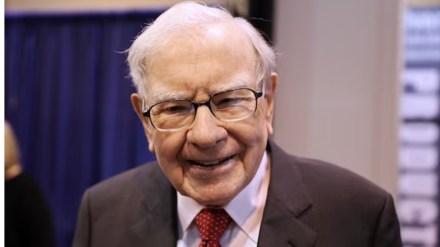One of the most interesting aspects of Warren Buffett’s letter to the Berkshire Hathaway shareholders is the stance on their investment in Japan. Berkshire will continue increasing its investments in Japan. As Buffett writes, “A small but important exception to our U.S.-based focus is our growing investment in Japan.”
Outlining their long-term commitment in these companies, Warren Buffett explained how they are planning to take the investments beyond the initial 10% ceiling that they had decided. Berkshire had invested in 5 Japanese companies 6 years ago in 2019. These included
-ITOCHU
-Marubeni
-Mitsui
-Sumitomo
“Our holdings of the five are for the very long term, and we are committed to supporting their boards of directors,” wrote Buffett and explained how though they had “agreed to keep Berkshire’s holdings below 10% of each company’s shares. But, as we approached this limit, the five companies agreed to moderately relax the ceiling. Over time, you will likely see Berkshire’s ownership of all five increase somewhat.”
At year end, Berkshire’s aggregate cost (in dollars) was $13.8 billion and the market value of our holdings totaled $23.5 billion. Meanwhile, “Berkshire has consistently – but not pursuant to any formula – increased its yen-denominated borrowings. All are at fixed rates, no ‘floaters’,” added the Oracle of Omaha.
Why Berkshire Hathaway invested in these 5 Japanese companies?
Berkshire had made its purchases in these five stocks in July 2019. These 5 companies are among the biggest “Sogo-Shosha” enterprises in Japan, meaninglage trading houses. Each of these large enterprises, in turn, owns interests in a vast array of businesses, many based in Japan but others that operate throughout the world. “ We simply looked at their financial records and were amazed at the low prices of their stocks. As the years have passed, our admiration for these companies has consistently grown,” added Buffett explaining the investment rationale.
According to Buffett, between him and Greg Abel (who is set to succeed Buffett), they have met the management of all these 5 companies many times and regularly follow their progress. “Both of us like their capital deployment, their managements and their attitude in respect to their investors. Each of the five companies increase dividends when appropriate, they repurchase their shares when it is sensible to do so, and their top managers are far less aggressive in their compensation programs than their U.S. Counterparts,” explained Buffett.
Japan – A commitment for long-term
The Oracle of Omaha also highlighted the long-term commitment in Japan is in sync with their plans to “seek a position approximating currency-neutrality. We are required, however, under GAAP rules to regularly recognize in our earnings a calculation of any gains or losses in the yen we have borrowed and, at year end, had included $2.3 billion of after-tax gains due to dollar strength of which $850 million occurred in 2024,” pointed out Warren Buffett. The Oracle of Omaha also voiced his expectation that Greg Abel and his eventual successors “will be holding this Japanese position for many decades and that Berkshire will find other ways to work productively with the five companies in the future.”
Highlighting how the dividend from these investments is adding to Berkshire’s bottomline he said, “We like the current math of our yen-balanced strategy as well. As I write this, the annual dividend income expected from the Japanese investments in 2025 will total about $812 million and the interest cost of our yen-denominated debt will be about $135 million.”
